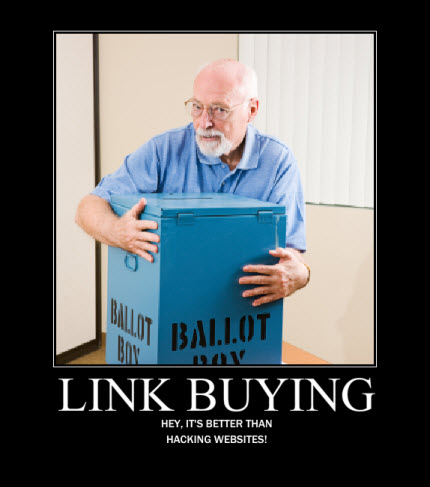How Search Promotes the Creation of Information Pollution
Imagine you are looking for fresh information, and are one of the hundreds of students searching for new scholarships each year. The top result Google shows you is a CNN news article for a $250 white's only scholarship from 2004. It was a stunt to shock people and send a message, and as a side effect anyone searching for new scholarships on Google gets to see that message. Does a speeding ticket make a driver a good driver? No, it just means that he was citation worthy. Some people do despicable things for links and make lots of money from it. It is a flaw of the current relevancy algorithms to assume that a citation makes a business trustworthy. On the commercial parts of the web, most links are an indication of is an ad budget, a public relations budget, nepotism, or controversy.
Where a business runs into issues with bad press is if it ranks for their core brand related terms, but typically that stuff can be drowned out by subdomains, alternate corporate sites, buying out competitors, and using a press page to pump up the good coverage a business gets. Current search algorithms encourage unethical business practices because they can't separate good from bad. They only care about who gets citations, which makes some people do just about anything for a link.
News agencies and other central authoritative systems have always highlighted things that were out of the ordinary, but search makes them stick around, and ranks them for broader topics just because they have a related tangent and were able to garner the most votes.

But is this a future we want?
Perhaps Procter & Gamble doesn't care of their making us into a nation of fat slobs, but there's no reason why programmers and the rest of the startup world need to be so amoral. And no doubt, as pictures of cats with poor spelling on them become all the rage, people are beginning to wonder about where all this idiocy is leaving us. Which is where apologists like Doctorow and Steven Johnson step in, assuring us that Everything Bad is Good For You.
It isn't. YouTube isn't going to save us from an Idiocracy-style future in which everyone sits at home and watches shows like "Ow! My Balls!" (in which a man is repeatedly hit in the balls) -- YouTube's damn-near creating that future. As I write this, YouTube's #1 featured video is titled "Farting in Public".
I just shaved my head, placed a tattoo front and center on my forehead, and ran naked through town with a flag wrapped around my penis. I can't imagine how many organic links will come rolling in, and will love it when the local newspaper page talking about that incident ranks #1 for US Flag. That ought to put me on the map:
New to the site? Join for Free and get over $300 of free SEO software.



Once you set up your free account you can comment on our blog, and you are eligible to receive our search engine success SEO newsletter.
Already have an account? Login to share your opinions.




Comments
Add new comment